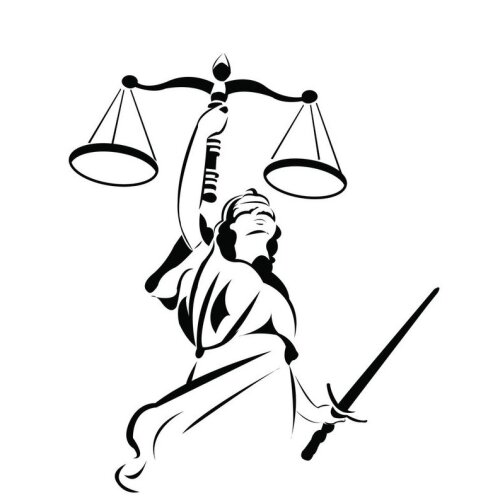Best Arrests & Searches Lawyers in Bengaluru
Share your needs with us, get contacted by law firms.
Free. Takes 2 min.
List of the best lawyers in Bengaluru, India
About Arrests & Searches Law in Bengaluru, India
In Bengaluru, India, arrests and searches are conducted in accordance with the procedures laid out by the Indian Criminal Procedure Code (CrPC) and other relevant laws such as the Indian Penal Code (IPC) and specific state legislation. These procedures aim to balance the power of law enforcement with the rights of individuals against unlawful detention and invasion of privacy. The Indian constitution guarantees certain rights to arrested persons, such as the right to be informed of the grounds of arrest, the right to legal representation, and the right to be presented before a magistrate within 24 hours of arrest.
Why You May Need a Lawyer
Legal help in cases of arrests and searches may be necessary for a variety of situations such as wrongful arrests, illegal searches, excesses by law enforcement, and when ensuring one's constitutional rights are protected. Lawyers can provide advice on the legality of an arrest or search, assist in securing bail, represent you in court, and help navigate the complexities of the criminal justice system. Additionally, a lawyer can be crucial in filing a case of compensation or taking legal action in scenarios of police misconduct or human rights violations during an arrest or search operation.
Local Laws Overview
In Bengaluru, like other parts of India, the procedure during an arrest requires the police to fulfill certain legal obligations like stating reasons for the arrest, allowing the accused to inform a relative or friend, and ensuring the arrested individual's rights are protected. The Code of Criminal Procedure, 1973, sets out the procedures, including necessary documentation and lawful conduct during an arrest, and dictates the manner of conducting searches, with provisions for search warrants, situations where warrantless searches are permitted, and the role of the police and the individual's rights during searches.
Frequently Asked Questions
What are my rights if I am arrested in Bengaluru?
You have the right to be informed of the grounds of arrest, contact a lawyer, and have a relative or friend informed of your arrest. You're also entitled to be presented before a magistrate within 24 hours.
Can the police search my home without a warrant in Bengaluru?
The police can search your home without a warrant only under certain circumstances, such as when a cognizable offense is suspected, and immediate action is necessary. However, such searches must be conducted as per the guidelines of the law.
Do I have the right to a lawyer during an interrogation?
Yes, you have the right to consult a lawyer during interrogation according to the Indian Constitution. Police are bound by law to allow you the opportunity to seek legal advice.
Can women be arrested at night in Bengaluru?
Generally, women should not be arrested after sunset and before sunrise, except in exceptional circumstances and with prior permission from a magistrate.
What should I do if I believe my arrest is illegal?
If you believe your arrest is illegal, request your lawyer to appear in court and challenge the legality of the arrest, filing a habeas corpus petition if necessary.
What are non-bailable offenses in Bengaluru?
Non-bailable offenses are serious offenses where bail cannot be claimed as a right and is subject to discretion by a magistrate or higher courts. They are detailed in the IPC and other special laws.
Are there any special protections for minors in arrest and search operations?
Minors are afforded special protection under the law such as the Juvenile Justice (Care and Protection of Children) Act, 2015, which mandates that the welfare of the minor is the primary concern during any legal procedure.
How long can the police detain someone without filing charges?
The police can detain a person for 24 hours without filing charges, after which they must be brought before a magistrate. The magistrate can authorize detention beyond 24 hours, up to a total of 15 days.
Can the police use force during an arrest?
The police are permitted to use reasonable force as necessary to make an arrest, but excessive use of force or torture is illegal and may be grounds for legal action against the officers involved.
How do I file a complaint against illegal actions by the police in Bengaluru?
You can file a complaint to the senior police officers, the State Human Rights Commission, or the National Human Rights Commission. An FIR can also be registered for police misconduct, and legal action can be taken against the offending officers.
Additional Resources
To seek assistance or information regarding arrests and searches in Bengaluru, you may contact the Karnataka State Legal Services Authority, Bengaluru City Police, or the Karnataka State Human Rights Commission. Non-governmental organizations (NGOs) providing legal aid or dealing with human rights may also be of assistance.
Next Steps
If you need legal assistance in cases of arrest or searches in Bengaluru, it is recommended to directly consult a criminal defense lawyer who is well-versed with the local laws. Ensure to contact a reputable law firm or reach out to legal aid services if you cannot afford a lawyer. Consider documenting all interactions with law enforcement and keeping a record of any violations of your rights, as this information can be crucial for your defense.
Lawzana helps you find the best lawyers and law firms in Bengaluru through a curated and pre-screened list of qualified legal professionals. Our platform offers rankings and detailed profiles of attorneys and law firms, allowing you to compare based on practice areas, including Arrests & Searches, experience, and client feedback.
Each profile includes a description of the firm's areas of practice, client reviews, team members and partners, year of establishment, spoken languages, office locations, contact information, social media presence, and any published articles or resources. Most firms on our platform speak English and are experienced in both local and international legal matters.
Get a quote from top-rated law firms in Bengaluru, India — quickly, securely, and without unnecessary hassle.
Disclaimer:
The information provided on this page is for general informational purposes only and does not constitute legal advice. While we strive to ensure the accuracy and relevance of the content, legal information may change over time, and interpretations of the law can vary. You should always consult with a qualified legal professional for advice specific to your situation.
We disclaim all liability for actions taken or not taken based on the content of this page. If you believe any information is incorrect or outdated, please contact us, and we will review and update it where appropriate.














